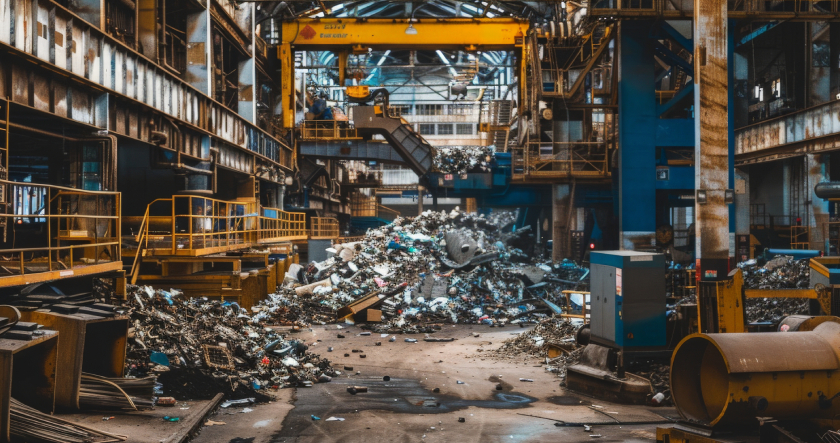Introduction : First let’s understand in a few words about what scrap metal recycling is. Scrap metal recycling is the process of recovering and processing the recyclable metals which are either raw metals and alloys, or that are taken care of from end of life products. Materials can then be reused and then reconfigured for making new metal goods and structures.
Scrap metal recycling plays a pivotal role when it comes to conserving the resources, promoting environmental sustainability and contributing to the circular economy. Besides this it also creates opportunities for individuals and industries to recover valuable materials. As different industries all around the world increasingly embrace recycled metals to meet their demands, the need for an effective process becomes more pressing.
So now that we have covered the basics, let’s understand the challenges of scrap recycling.
Processing Diverse Metal Streams : The industry is marked by a diverse array of metals, ranging from ferrous ferrous metals to the valuable non ferrous metals like aluminum, copper and zinc. Each type of metal has different properties, density and magnetic characteristics making it challenging to efficiently separate them.
Scrap Metal Contamination and Purity : Non metallic materials, chemicals, dirt and other impurities often find their way into recycling streams. These contaminants can significantly impact the quality and value of recycled metals.
End of life production Variation : As our world becomes increasingly reliant on technology, the challenge of recycling end of life products especially cars and electronic waste has grown. These products often compromise a mix of metals, plastic and other components which ends up complicating the recycling process.
Complex techniques and specialized knowledge : The evolution of technology has given rise to advanced recycling techniques which are tailored to specific metals. For instance recycling aluminum will require complex procedures such as smelting and electrolysis. And even though these methods are highly effective, they also demand specialized knowledge and substantial investment in technology, presenting a hurdle for many facilities.
Meeting regulatory compliance and legislation : The scrap metal recycling industry operates in a landscape shaped by dynamic environmental regulation and legislation which continues to evolve. Compliance with these regulations demand
- Continuous monitoring
- Adjustment to procedure
- At a certain time, substantial financial investments to meet changing requirements.
Global Market Fluctuations : The global market for scrap metal is influenced by factors ranging from demand in various industries to energy costs and economic conditions. These market fluctuations can be unpredictable, impacting the revenue stream of recycling operations. Prices for scrap metals can vary greatly which affects the profitability and viability of recycling efforts.
Gold, Silver and platinum recycling
Endeavor Recyclers is no stranger to metal recycling or the challenges that come with it. But what distinguishes Endeavor Recyclers to its competitors are not just the services in this field but also with the use of innovative technology, plays a significant role in sustaining resource recovery for a greener tomorrow.
Conclusion : While finding concrete solutions to these problems is still a challenge, innovation and use of a world class facility can surely solve most of these challenges and that is where Endeavor Recyclers steps in. Providing an array of recycling services and logistics for the same, they drive innovation to a whole new level.


